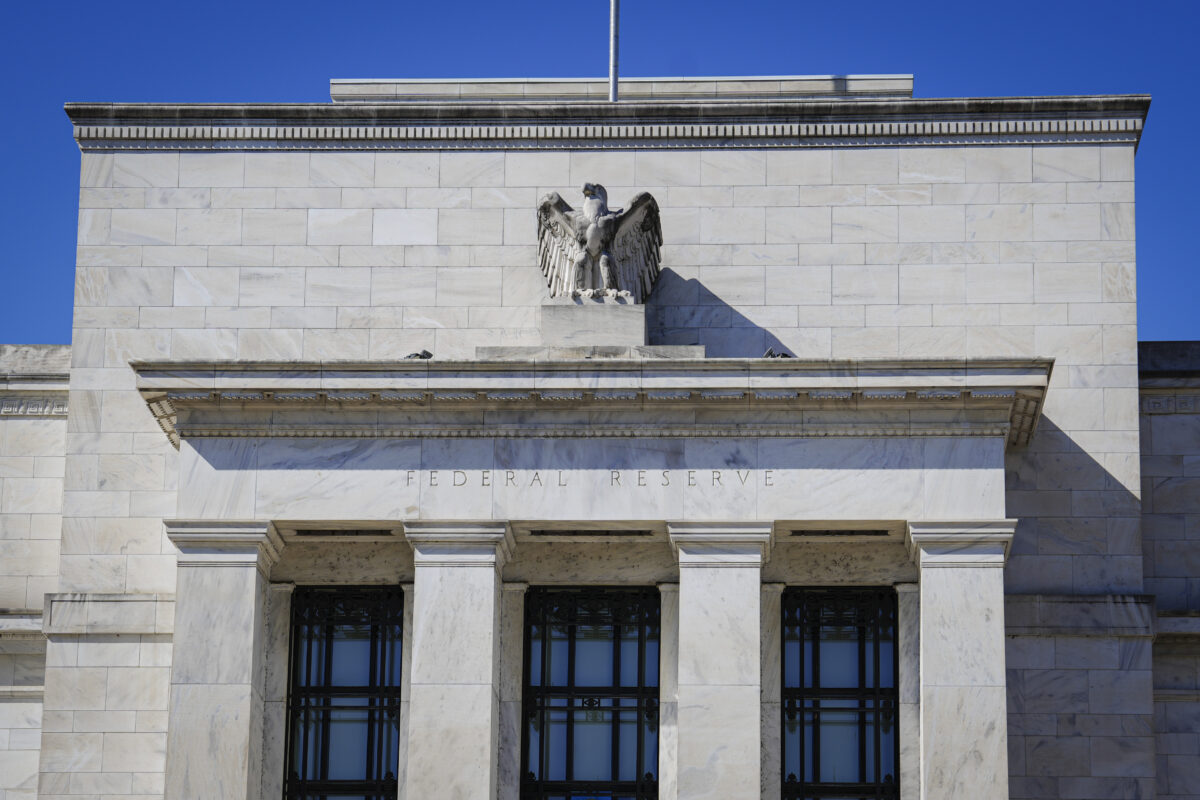


Commentary
A hullabaloo over a digital dollar first emerged in 2019 when the People’s Bank of China (PBOC) launched its digital yuan. Speculation arose that unless the United States responded in kind, China’s yuan would soon surpass the dollar as the world’s premier reserve currency.
The speculation was pointless. There is much more to a reserve currency than a convenient digital exchange mechanism. In recent weeks, the subject has gained new life in response to Washington’s announcement that it is looking to create a digital dollar. Advocates claim much good will come from it. Others see dangers. Still, others hold that the effort is pointless and that the dollar has effectively been digital for years.
The current impetus comes from White House Executive Order 14067, titled “Ensuring Responsible Development of Digital Assets.” According to a White House summary, the investigation will receive full “interagency” treatment to consider “18 technical design choices.”
Nor is the White House the only source of interest. In Congress, Rep. Stephen Lynch (D-Mass.) has introduced the eCash Act, calling on the Treasury to implement a digital currency. Also, the Federal Reserve Bank of New York has launched a 12-week pilot program to test the use of a digital dollar.
With so many options, it is hard to tell what, if anything, might eventually emerge from Washington’s effort. Presumably, like the PBOC’s digital yuan, the Federal Reserve (Fed) would create dollar accounts for everyone and digitally administer their transactions. Today, the Fed creates reserves for banks, which create and administer the accounts. Some of the 18 choices the White House summary alludes to would keep the banks as intermediaries. Either way, all these digital transactions would presumably appear on a single Fed ledger.
Aside from offering the United States an answer to the PBOC, digital dollar advocates stress three additional virtues. First, digital currency would enable people and businesses to transfer money cheaper and easier than they can today. Second, the arrangements would offer access to financial services to 4.5 percent of Americans who today are “unbanked,” as the popular descriptor goes. Third, it would allow Washington an easy way to reapportion cash benefits to citizens—directly and securely—simply by debiting and crediting their digital accounts.
Aside from the obvious technical advantages of points one and three, it is not apparent that the digital dollar would make much difference to the “unbanked.” Modern e-banking apps have all but eliminated the trouble and minimums that once kept people from using financial services. A cheaper and easier answer for these people might lie in education and free iPhones for the needy.
Whatever the digital dollar’s virtues, it would also bring problems. Chief among them is the matter of privacy. If transactions all appear on a government computer, the authorities will have easy access to information on each person’s purchases and sales and, accordingly, the ability to use that information against them. No doubt, such an unparalleled surveillance capability is why China has led in this area.
True, Washington can access such information through credit and debit cards, but the authorities must get a court order from an independent judiciary to access those records. A digital system might offer similar safeguards, but the existence of everything on one government-administered computer certainly makes access easier, quicker, and hence more prone to abuse.
A digital dollar arrangement could also muddle the allocation of capital. Presently, bank lending and the flow of information in financial markets direct financing to what are presumably the most promising investment prospects. But if digital deposits lie with the Fed, then government employees will direct much investment financing. Such an arrangement could easily see investment financing take a political direction. Though politicians and bureaucrats always think they know better, their track record is hardly something anyone would brag about. If the past is a guide, the increased political influence will tend to slow the growth of income and wealth, except, of course, among the politically connected.
Nor is it apparent that the effort is at all necessary. Whatever China’s needs, it should be obvious to all that the dollar and most other major currencies have long been digitized. Most people today are paid through direct deposits. Tax refunds also arrive that way, and tax payments are automatically withdrawn, as are many bills. Transactions occur quickly and conveniently through credit cards, debit cards, Apple watches, PayPal, and a host of similar schemes. Even foreign currency transactions occur automatically through one or another of such devices. Perhaps a digital dollar would facilitate all this cheaper and more conveniently, but it is neither essentially different from what exists now, nor is it worth risking other drawbacks.
Views expressed in this article are the opinions of the author and do not necessarily reflect the views of The Epoch Times.
